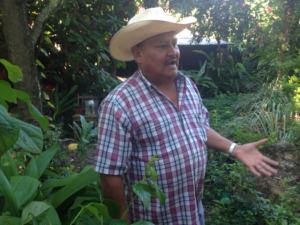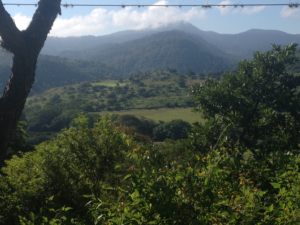Nicaragua is one of the most beautiful places I’ve ever been – stunning landscapes of mountains, beaches, jungles, and patch-worked small farms sweep up and down the hillsides everywhere.
But most beautiful to me is the spirit of the Nicaraguan people: though I know all the perils of generalizations, I have found them to be exceptionally generous with strangers, deeply determined around issues of social justice, and infused with a wicked sense of humor.
I lived in Nicaragua for six months in 1984-85, working with Witness for Peace to try to end the U.S.-supported Contra war, and as part of that effort returned several time for shorter stays. But last week was my first visit in over 25 years, as I worked to set up new partner relationships in preparation for our first delegation May 21-28, 2016: https://uucsj.org/journeys/nicaragua/.
In a collaboration with Equal Exchange, we have developed a remarkable opportunity for U.S. citizens to learn about economic justice in the face of looming climate change, and to ask with us the larger question: What does solidarity between our countries look like at this particular moment of history?

Augusto Cabrillo Obregon, a campesino near Esteli, describes the impact of climate change on his farm.
In the course of one short week, I met with over a dozen organizations: fair trade cooperatives, women’s empowerment collectives, human rights organizations and environmental justice groups. I witnessed the ways climate change is already drastically impacting coffee farms, and the measures that organic cooperatives are taking to try to survive. I heard the stories of impassioned campesina women as they told me about the connections they have learned to see between violence against women and violence against the earth. Courageous human rights workers told me about the deepening crisis they see in the corruption of their government and its many alliances with big business. And in the mountains around Matagalpa, I heard of the struggle against a new goldmine that would destroy the watershed of the Yaoska River.
I am excited to be part of this new program, linking justice activists to one another across distance and culture, across decades of colonial violence and more recent economic violence, in exploration and discernment together. What does solidarity look like, in this moment of history? Join us for the journey, and help us find out!
This blog post was written by Rev. Kathleen McTigue, Director at the UU College of Social Justice (UUCSJ).


